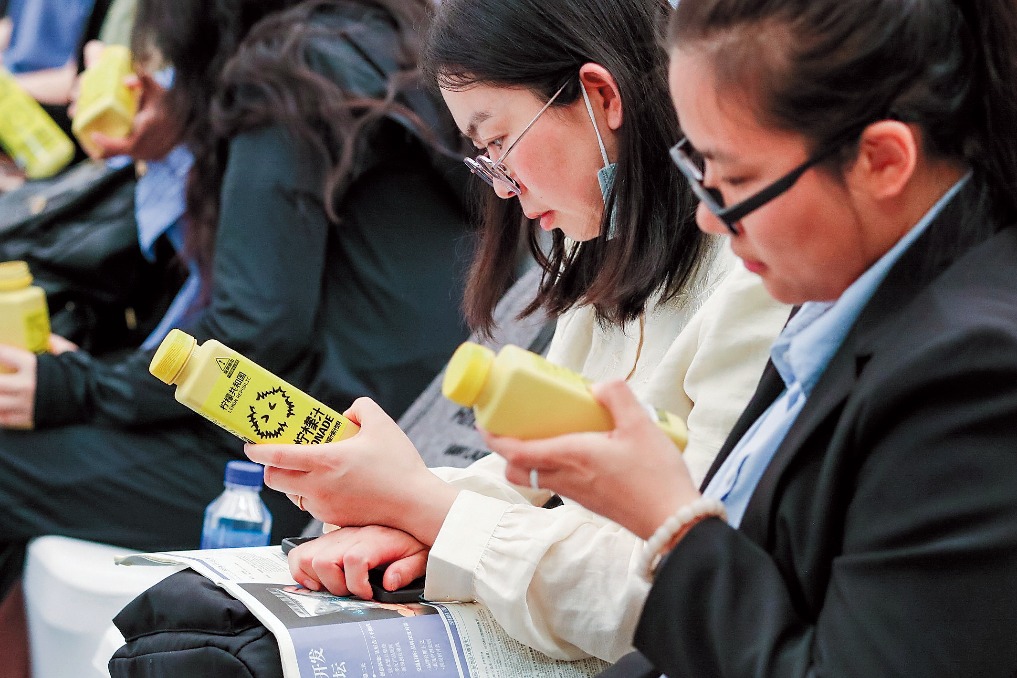Huawei ready for 'worst-case scenario'


Home industry to get boost
Wang Peng, deputy head of China Center for Information Industry Development, a think tank, said the move signifies the US has realized that cutting off all supplies to Huawei would hurt the interests of millions of its people.
"Some small US mobile carriers, for instance, bought Huawei's cost-effective products to build their existing rural networks. A sizable number of overseas consumers also use handsets from Huawei," Wang said.
Last year, Huawei bought $11 billion worth of products and services from US companies. Some US semiconductor companies, like Qorvo, get about 10 percent of their revenues from Huawei, according to a report by financial services company Credit Suisse.
John Neuffer, president of the Semiconductor Industry Association, which represents US chipmakers and designers, said in a statement that the association hopes to work with the administration to broaden the scope of the 90-day license.
According to Ren, the current difficulties can spur China to develop its own semiconductor industry in a systematic manner. "Pouring in money is not enough; talent, including mathematicians and physicists, is needed to develop the homegrown chip sector."
"Global talent is also needed. It is very difficult to rely solely on China's independent innovation to succeed. Why can't we embrace the world and rely on global innovation?" Ren said.
During the interview, Ren thanked the US companies that have helped Huawei grow in the international tech arena, adding that many of its consultants are from the US companies, including IBM.
"Our friendship with them was formed years or decades ago," Ren said, adding that if US companies can get government approvals, Huawei would still want to buy large quantity of components from them and maintain normal trade cooperation.
"Building an information society for human beings requires joint efforts," Ren said.
According to him, many small US companies have super-precision products.
"In our business (5G), Huawei is at the forefront, but when it comes to comparison between countries, we are still far behind the US," Ren added. US technology has the depth that Huawei can learn from, Ren said.
5G tech leader
Huawei has evolved into a global giant with a sprawling presence in businesses, including smartphones, cloud computing, artificial intelligence and semiconductors. Its products and services are available in more than 170 countries and regions.
In the first three months of this year, Huawei posted a revenue of 179.7 billion yuan ($26.8 billion), a 39 percent year-on-year growth, despite challenges it faces in some international markets.
Ren said while the US ban may slow the company's growth, it will not go through an extreme shortage of supplies.
When it comes to 5G, the next-generation mobile communications technology, Huawei has maintained its edge. Ren highlighted that the company's 5G plan will not be affected by the current challenges.
"Rivals will not be able to catch up with Huawei's 5G technology for two to three years," he said.
By the end of March 2019, Huawei had signed 40 commercial contracts for 5G with leading global carriers, and shipped more than 70,000 5G base stations to markets around the world. These figures represent the industry's largest.
Ren said that despite the US efforts to make its allies to ban Huawei, the company maintains close ties with European companies. He said its 5G features are well-suited for Europe.
"For instance, 5G capacity is 20 times that of 4G, and its power consumption 10 times less. And the size of 5G base stations is much smaller than those of 4G, allowing them to be conveniently installed even in sewers. We use materials that do not corrode for decades. These are well-suited for Europe, where many old cities do not have places to build giant telecom towers and install big base stations," Ren said.
The US-led crackdown on Huawei has been interpreted by some observers as the beginning of a new Cold War between China and the US in advanced technology.
Washington's stand on Huawei, along with the intensified conflict over bilateral trade issues, has boosted popular support for the company in China. Some people have called for supporting Huawei by boycotting Apple, a US tech company.
Ren, however, says: "Supporting Huawei in these difficult times does not necessarily mean you should buy a Huawei smartphone. It is wrong to say those who use Huawei devices are patriotic, while those who choose Apple products are not."
"Business has nothing to do with politics," Ren added.
- US restrictions on Huawei to obstruct global 5G network rollout, industry earnings: report
- Huawei launches Cloud & AI Innovation Lab in Singapore
- Tech giants take solutions, services overseas
- Finnish experts describe US restrictions on Huawei as 'rough' against 'innocent users'
- Huawei: Existing devices still get updates, support




































